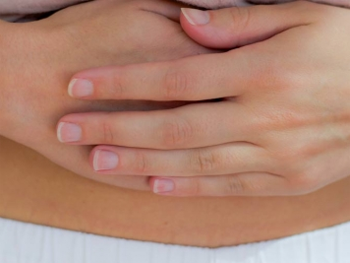Periods: What You Don't Know

Four Things You Didn't Know About Periods
When you first learn about periods and get your first one, there's a lot to take in, and get used to; tracking your cycle, managing the flow, and regularly changing your pads or tampons.
Often shushed by society, period talk – even into adulthood – can seem like whispered 'women's-only' business, a taboo topic rather than a crucial and celebrated part of women's health.
So in case you missed a menstrual memo, or just want to learn more, here are four things you may not know about the menstrual cycle.
Menstrual fluid: not what you think
If you had to guess how much menstrual fluid you lose during a period, what would you estimate? 100ml? 150ml? Research shows that women often overestimate the amount of menstrual fluid lost during a period. Despite our best guesses, the average total volume of fluid lost over one period is only 35-50ml – that's around 2-3 tablespoons.
Losing more than 80ml in a period, or having to change your pad or tampon hourly or more often, or overnight, are signs of heavy menstrual bleeding. If heavy bleeding is disrupting your quality of life, it's important to speak to your doctor and get support to help you manage it. Listen to this podcast to learn more.
As a side note: although it's commonly referred to as 'menstrual blood', blood only makes up part of the fluid. The rest consists of vaginal secretions and cells from the lining of the uterus – and the proportions of each can vary between women.
Knowing your 'fertile window'
A Monash University study of women seeking treatment for infertility showed a big gap between what the women actually knew and what they believed they knew about their fertile window, with 68% of the women believing they accurately timed intercourse on their fertile days to achieve natural conception.
In fact, just 13% of the women in the study correctly identified the most fertile days of their menstrual cycle.
For the record, the fertile window is considered to be five days prior to and the day of ovulation (the release of the egg), with a woman's best chance of conceiving being the two days prior to and the day of ovulation. In a typical 28-day cycle, ovulation occurs on day 14, so the fertile window is considered to be days 9-14, but pregnancy has the greatest opportunity of occurring through sex on days 12-14.
3. Syncing cycles is an urban myth
It's widely believed that women who live together or spend lots of time together synchronise their menstrual cycles – that is, they begin to get their periods at the same or similar times, and the cycles end up following a similar pattern.
However, a 2005 research study that tracked the cycles of 186 women living in the same dormitory for more than a year found that the women's periods didn't align with each other after all.
What's more, results from another small study, conducted by the fertility app Clue and researchers from the University of Oxford, found that the cycles of 273 pairs of women living together did not align either and were actually more likely to become more different over time.
The urban myth of syncing cycles can be traced back to a 1971 study that documented the findings after studying American college students. It was thought that women release pheromones (chemicals similar to hormones) that influence each other's cycles, but the 1971 study has since drawn criticism for using flawed statistical methods and its results have yet to be replicated.
Still, the idea of sharing cycles and connections with the women around you seems to be a powerful one and the urban myth lives on.
Your periods take up years of your life
On average, Western women have more than 450 periods in her lifetime. This might not seem like a lot of time when it's spread out over a lifetime, but if the bleed typically last 4-5 days, this means women spend the equivalent of 5-6 years menstruating – and that is a long time!
And while these stats are interesting (and maybe surprising), there is also an important lesson to learn; when you add up the total time you spend menstruating, you can see it's a big proportion of your life, so if you have problems with your period – such as severe pain, heavy bleeding or other issues – you do not have to suffer through it in silence. Speak up and get the right advice and support from a trusted health professional.
Read more about periods in the Health A-Z / Periods section of the website.
Published with the permission of Jean Hailes for Women's Health
1800 JEAN HAILES
(532 642)
MORE





